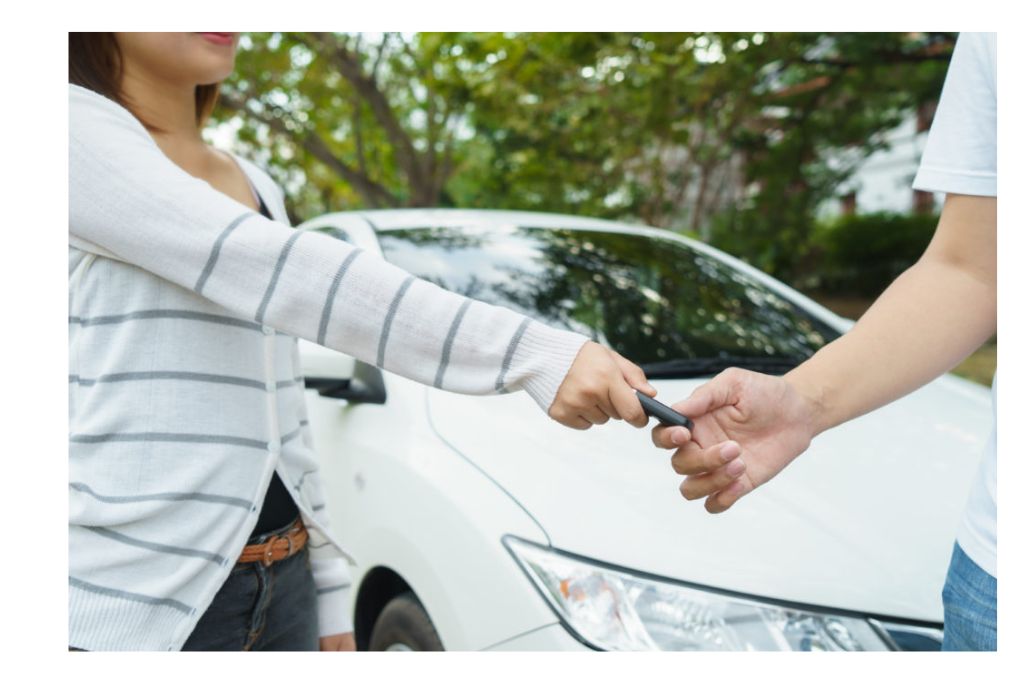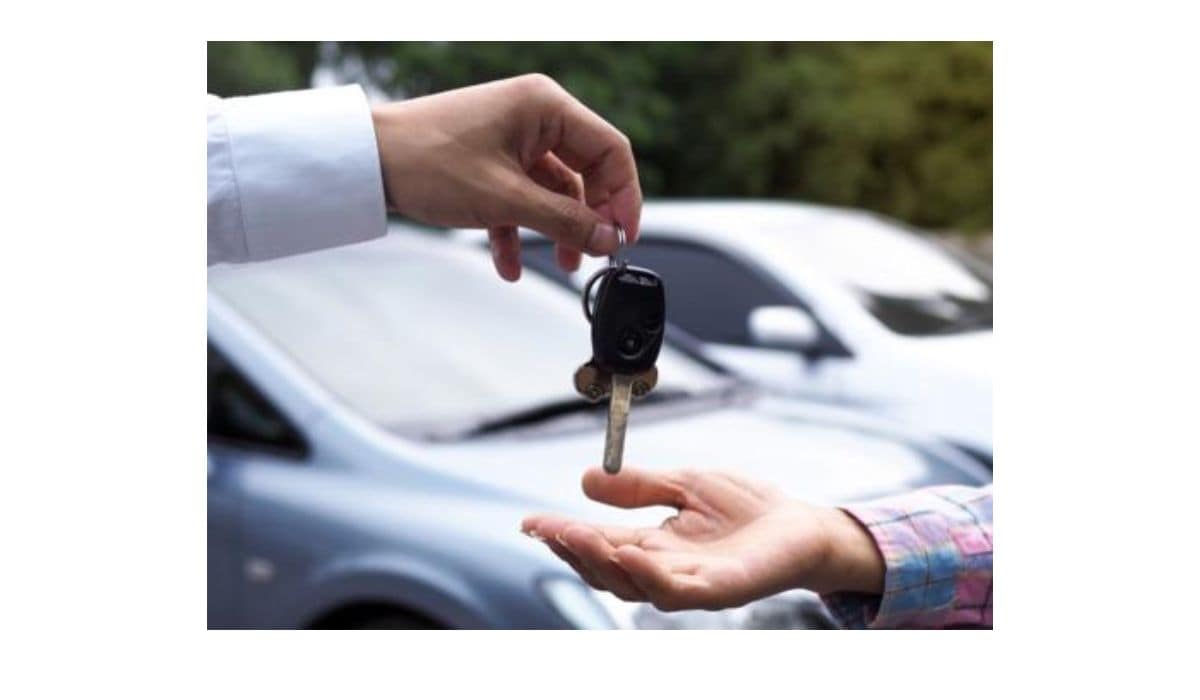When someone dies without a will, their car typically goes through the probate process. The court decides who inherits the vehicle.

Dying without a will, known as intestacy, can complicate the distribution of assets, including a car. The probate court steps in to manage the deceased’s estate, following state-specific intestacy laws. These laws dictate how assets are distributed among surviving relatives.
Immediate family members often have priority in inheritance. The process can be time-consuming and may incur legal fees. It’s crucial to understand local laws and possibly consult an attorney for guidance. Planning ahead with a will can prevent these complications and ensure your assets go to your chosen beneficiaries.
Probate Process
When someone dies without a will, their assets, including their car, go through a legal process called probate. The probate process ensures that the deceased’s property is distributed according to state laws. This can be complex, especially when there is no will to guide the distribution. Understanding the steps involved can help clarify what happens to the car and other assets.
Intestate Succession
Intestate succession refers to the legal process used when someone dies without a will. Each state has its own rules for this process. Generally, the deceased’s closest relatives inherit the assets. The car is part of the estate and follows these rules. The order of inheritance usually looks like this:
- Spouse
- Children
- Parents
- Siblings
- Other relatives
If the deceased had a spouse and children, they typically share the estate. If there are no close relatives, the state may take possession of the assets. The car will be valued and may need to be sold to pay off debts. Any remaining value will be distributed according to the law. This ensures that the deceased’s property is fairly divided among the rightful heirs.
Appointment Of An Administrator
An administrator is appointed to manage the deceased’s estate. This person is responsible for handling all the assets, including the car. The court usually appoints a close relative as the administrator. Sometimes, a neutral third party may be chosen. The administrator’s duties include:
- Identifying and valuing all assets
- Paying off any debts and taxes
- Distributing the remaining assets to the rightful heirs
The administrator must follow the state’s laws closely. They must ensure that everything is done fairly and legally. The car may need to be appraised to determine its value. If the estate has many debts, the car might be sold to pay them off. Any remaining value from the car will go to the heirs. This process can take time and requires careful attention to detail.
Distribution Of Assets
When someone dies without a will, their assets, including their car, are distributed according to state laws. These laws, called intestacy laws, determine who gets what from the estate. Understanding these rules can help families know what happens to the car and other belongings.
Spouse And Children
If the deceased has a spouse and children, the car is usually shared between them. The exact share depends on the state’s laws. In some states, the spouse may get the entire car. In others, the car is split between the spouse and children.
Here is a simple breakdown:
- Spouse gets all: In some states, the spouse inherits the entire car.
- Split between spouse and children: In other states, the car is divided among them.
For example, in State A, the spouse may get 50% of the car, and the children share the rest. In State B, the spouse might get the entire car if the children are also their children. Each state’s rules can be different, so it’s important to check local laws.
Other Family Members
If there is no spouse or children, other family members can inherit the car. This usually follows a specific order. First, the parents of the deceased may get the car. If the parents are not alive, siblings can inherit the car.
Here is how it might look:
| Family Member | Order of Inheritance |
| Parents | First |
| Siblings | Second |
| Extended Family | Third |
If the parents are not living, the car goes to the siblings. If there are no siblings, then extended family members might inherit the car. This includes aunts, uncles, and cousins. Each state may follow a different order, so it’s good to know the specific rules.
No Surviving Relatives
If there are no surviving relatives, the car usually goes to the state. This means the government takes ownership of the car. This process is called escheatment. The state may then decide what to do with the car.
Possible outcomes include:
- Auction: The state may auction off the car.
- Use: The state might use the car for government purposes.
Without any family, the state follows its laws to handle the car. This ensures that the car is not left abandoned and is put to some use. It’s essential to understand these rules to know what happens in such cases.

Sale Of The Car
Dealing with a loved one’s car after they die without a will can be tricky. The process involves determining ownership, valuing the car, and finally deciding what to do with it. This blog post will guide you through each of these steps.
Determining Ownership
When a person dies without a will, the car’s ownership can be complex. The first step is to find out who has the legal right to the car. State laws will guide this process, often based on intestate succession. This means the state decides who gets the car.
Here are some key points to consider:
- Spouse or children are usually first in line.
- If there are no immediate family members, extended family may have rights.
- Legal documents like titles or registrations can provide clues.
Sometimes, the court may appoint an executor or administrator. This person will handle the car and other assets. They will follow state laws to ensure the car goes to the right person.
Valuation Of The Car
Next, it’s important to know how much the car is worth. This is crucial for fair distribution among heirs. Professional appraisals can provide an accurate value. They consider the car’s make, model, year, and condition.
Here are some ways to determine the car’s value:
- Use online tools like Kelley Blue Book or Edmunds.
- Check local listings for similar cars.
- Consult with a professional appraiser if the car is rare or vintage.
Accurate valuation helps in making informed decisions. It ensures all heirs get their fair share. This step is crucial before moving on to the final decision about the car.
Disposing Of The Car
Once ownership and value are determined, the final step is deciding what to do with the car. There are several options to consider. Selling the car is a common choice, especially if the heirs need cash.
Here are some other options:
- Keeping the car for personal use.
- Transferring ownership to a family member.
- Donating the car to charity.
Each option has its pros and cons. Selling the car provides immediate funds but may involve finding a buyer. Keeping the car means dealing with maintenance and insurance. Donating the car can be a generous act but may not bring financial benefits.
Carefully weigh each option to make the best decision for the family. This ensures that the car is handled in a way that respects the deceased’s memory and benefits the heirs.
Legal Consequences
When a person dies without a will, their assets, including their car, go through a legal process. This process is known as intestate succession. The car, like other assets, is subject to rules and laws that vary by state. Understanding the legal consequences can help family members navigate this complex situation.
Liabilities And Debts
A deceased person’s car may have liabilities and debts attached to it. These must be settled before the car can be distributed to heirs. Common car-related debts include:
- Outstanding car loans: The balance must be paid off.
- Unpaid parking tickets: These fines need to be cleared.
- Repair costs: Any pending repair bills should be addressed.
Creditors have the right to claim their dues from the deceased’s estate. This includes the car. If the estate lacks funds to cover these debts, the car might be sold. The proceeds will be used to pay off the creditors.
Taxes And Inheritance
Taxes play a significant role when inheriting a car from a deceased person. Heirs may have to pay inheritance tax depending on the value of the car and state laws. Additionally, the estate itself may be subject to estate tax if it exceeds a certain value threshold.
Below is a table summarizing common taxes involved:
| Type of Tax | Description |
| Inheritance Tax | Tax paid by heirs based on the car’s value. |
| Estate Tax | Tax on the deceased’s total estate value. |
Heirs must also transfer the car title to their name. This process often involves paying registration fees and possibly sales tax. The fees vary by state and the car’s value.
Potential Disputes
Disputes can arise among family members over who inherits the car. These disputes are more likely if the car has significant value or sentimental importance. Without a will, state laws determine who gets the car. This can lead to disagreements.
Common sources of disputes include:
- Multiple heirs: More than one person may claim the car.
- Sentimental value: The car may have emotional significance.
- Unequal distribution: Perceived unfairness in asset division.
Resolving disputes can involve mediation or court intervention. Mediation is a less formal method where a neutral third party helps the family reach an agreement. Court intervention is more formal and can be time-consuming and costly.
Our Previous Post:
| How to Remove Tint from Car Window: Quick & Easy Guide |
| Is the car AC stop working Suddenly? Quick Fixes & Tips! |
| How to Clean Corrosion off Car Battery: Quick & Easy Fixes |
Frequently Asked Questions On What Happens to a Car When Someone Dies Without a Will
What Happens To The Car?
The car becomes part of the deceased’s estate. It will be distributed according to state laws.
Who Inherits The Car?
Without a will, the car typically goes to the next of kin. This is determined by state intestacy laws.
Can The Car Be Sold?
Yes, the car can be sold. The executor or administrator of the estate handles the sale.
Do You Need Probate For The Car?
In most cases, probate is needed to transfer the car’s ownership. This depends on state laws and the car’s value.
Conclusion
Dealing with a car when someone dies without a will can be complex. It’s crucial to understand probate laws and procedures. Seek professional legal advice to navigate this process smoothly. Proper planning and documentation can prevent future complications. Ensure all assets are managed effectively to honor the deceased’s wishes.
Last Updated on June 22, 2024 by Brian Beasley

